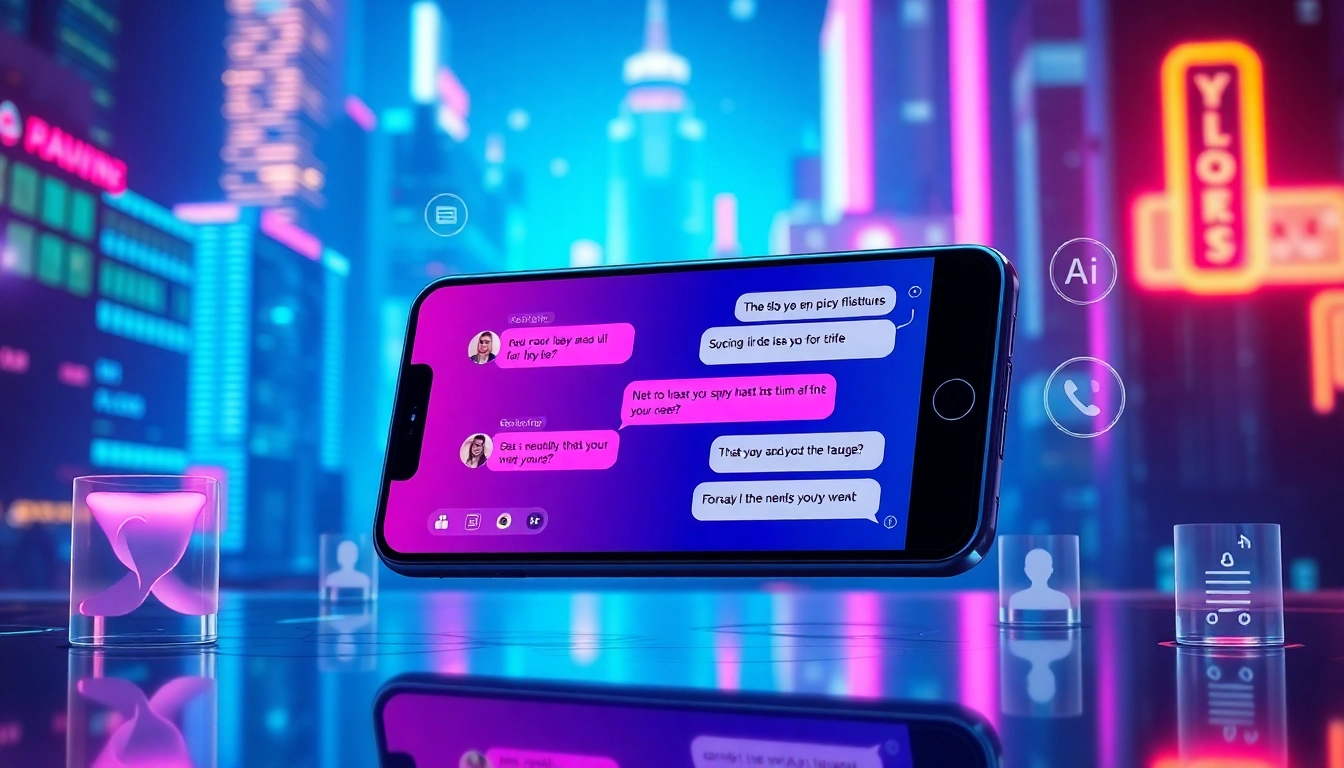The Evolution of AI-Generated Characters: From Fiction to Personal Interaction
Over the past decade, artificial intelligence has transitioned from a niche technological concept to a pervasive force transforming entertainment, communication, and creative industries. One of the most exciting developments in this arena is the rise of AI-generated characters capable of engaging users in natural, dynamic conversations. These characters are no longer confined to static text or pre-scripted dialogues; instead, they now exhibit complex personalities, maintain context across sessions, and adapt their responses based on user interactions. A notable platform leading this innovation is CrushOn AI, which empowers users to create and interact with customizable AI characters, including niche personas like futa ai and AI Slut characters. This evolution reflects broader trends in AI development, emphasizing personalization, realism, and engagement, reshaping how we perceive digital companionship and storytelling.
Understanding the Appeal of AI Characters in Modern Society
AI characters have become increasingly popular for various reasons. For casual users, they offer an accessible way to explore creative storytelling, role-playing, or simply enjoy engaging conversations without judgment or fatigue. For content creators and developers, AI characters open new avenues for immersive experiences, virtual companionship, and even educational tools. The appeal lies in their ability to simulate human-like interactions, remembering past conversations, and adapting to user preferences over time. Platforms like CrushOn AI exemplify this shift, providing a robust environment where users can craft unique personalities and delve into multi-character group chats that foster rich, ongoing dialogue.
The Technology Powering Creative AI Characters
Advanced Language Models: GPT-4o mini and Claude 3.5 Sonnet
The backbone of modern AI characters is the deployment of sophisticated language models. CrushOn AI harnesses cutting-edge models like GPT-4o mini and Claude 3.5 Sonnet, which are designed to generate highly natural, context-aware responses. These models excel in understanding nuanced prompts, maintaining coherence over extended conversations, and mimicking diverse speech styles. This technological prowess ensures that interactions feel genuine, whether users are engaging in casual chats, roleplays, or storytelling scenarios.
Customization and Personalization Features
One of the platform’s standout features is the ability to customize characters extensively. Users can choose from a library of pre-made personas or craft their own with detailed traits, backstories, and personality quirks. This customization allows for a tailored experience where each character responds in a way that aligns with its defined personality, making interactions more immersive and meaningful. For example, users can create characters with specific interests, speech patterns, or emotional tendencies, enhancing the depth and authenticity of conversations.
Memory and Contextual Continuity
A critical component that elevates AI character interactions is the memory system embedded within platforms like CrushOn AI. This feature enables characters to remember past conversations, preferences, and details shared during previous sessions. As a result, users experience a seamless, ongoing relationship with their AI characters, akin to building a rapport with a real person. This continuity is essential for role-playing, storytelling, or even casual companionship, as it fosters trust and a sense of familiarity over time.
The Role of Platforms Like CrushOn AI in Shaping AI Character Interaction
CrushOn AI stands at the forefront of a new era of AI character interaction. Its user-friendly interface, combined with advanced capabilities, makes it accessible to both novices and seasoned creators. The platform supports multi-character group chats, allowing users to manage complex narratives involving several personas simultaneously. Additionally, cross-device accessibility ensures that users can engage with their characters via web or mobile apps, providing flexibility and continuous engagement regardless of location.
This comprehensive approach not only democratizes AI character creation but also encourages experimentation with different personas, genres, and interaction styles. Whether used for creative storytelling, personal companionship, or role-playing games, platforms like CrushOn AI are instrumental in shaping the future landscape of AI-driven narratives.
Ethical Considerations and Community Impact
As AI characters become more sophisticated and prevalent, ethical issues inevitably arise. Concerns about user manipulation, privacy, and the potential for AI to be used inappropriately are critical topics within the community. Responsible development and usage guidelines are essential to ensure that AI remains a positive tool for creativity and connection.
Community impact also includes discussions around consent, representation, and the potential for AI characters to reinforce stereotypes or biases. Developers and users alike must remain vigilant, promoting transparency and ethical standards. Platforms like CrushOn AI often implement moderation features and user controls to foster a safe environment where creativity thrives without compromising ethical boundaries.
Future Trends in AI-Generated Character Content
The trajectory of AI-generated characters is poised for remarkable growth. Future advancements may include even more realistic voice synthesis, emotional intelligence, and adaptive learning capabilities that allow characters to evolve their personalities over time. Integration with virtual and augmented reality could create immersive environments where AI characters inhabit physical spaces or virtual worlds, enhancing realism and engagement.
Moreover, as AI ethics and societal norms evolve, we expect to see increased emphasis on transparency, consent, and user control. Customizable AI characters may also expand into more specialized domains, such as therapy, education, or professional coaching, broadening the scope beyond entertainment and casual interaction.
Creating and Engaging with Niche AI Characters: The Case of Futa AI and AI Slut
How Users Can Build Their Own AI Personas
One of the key attractions of platforms like CrushOn AI is the ability to craft niche characters, including futa ai and AI Slut personas. Users can start with pre-made templates or create entirely new characters by defining traits, backgrounds, and speech patterns. This customization process often involves selecting personality parameters, interests, and interaction styles, ensuring the AI persona aligns with the user’s preferences.
Once created, these characters can be engaged in various scenarios—be it role-playing, storytelling, or casual conversation—supported by the platform’s advanced language models that generate authentic and contextually appropriate responses. The memory system further enhances the experience by allowing characters to recall past interactions, making each session feel more personal and genuine.
Engagement and Long-Term Interaction Strategies
Maintaining engaging interactions with niche AI characters requires understanding their personalities and leveraging the platform’s features. Regular interaction, updating character traits, and exploring different scenarios enrich the user experience. Multi-character group chats can simulate social environments, fostering complex narratives and dynamic conversations. Cross-device access ensures users can continue their interactions seamlessly across smartphones, tablets, and desktops.
This ongoing engagement not only enhances entertainment but can also serve educational or therapeutic purposes, depending on the character’s design and the user’s intent.
The Future of AI in Creative and Personal Interactions
The integration of AI into personal and creative domains is set to accelerate. As models become more sophisticated, AI characters will likely exhibit greater emotional nuance, empathy, and adaptability. This progress will open new possibilities for virtual companionship, personalized storytelling, and even professional applications like coaching or therapy.
Specifically, niche characters like futanari ai and AI Slut personas exemplify how AI can be tailored to specific interests, fostering communities around shared passions. As societal attitudes toward sexuality and identity continue to evolve, AI platforms will play a role in providing safe, private spaces for exploration and expression.
In conclusion, the rise of AI-generated characters—powered by advanced language models and sophisticated customization tools—marks a significant milestone in digital interaction. Platforms like CrushOn AI are pioneering this frontier, offering endless possibilities for creative expression, companionship, and storytelling. As this technology matures, ethical considerations and community standards will be vital in shaping a future where AI serves as a positive, enriching tool for all users.



